Aggression
Aggression is a behavior characterized by verbal or physical hostility towards others. It can be a response to frustration, a way to assert dominance, or a form of self-defense. Aggression can be expressed in various forms, including physical violence, verbal abuse, and passive-aggressive behavior.
Causes of Aggression
There are several factors that can contribute to aggressive behavior:
- Biological Factors: Genetics, brain chemistry, and hormonal imbalances can influence aggression.
- Environmental Factors: Exposure to violence, abuse, or stressful situations can trigger aggressive behavior.
- Social Factors: Peer pressure, societal norms, and cultural influences can impact the likelihood of displaying aggression.
- Psychological Factors: Mental health disorders, such as conduct disorder or oppositional defiant disorder, can contribute to aggression.
Types of Aggression
Aggression can be categorized into different types based on the underlying motives:
- Instrumental Aggression: This type of aggression is goal-oriented and is used to achieve a specific outcome, such as obtaining a desired object or asserting dominance.
- Reactive Aggression: Also known as impulsive aggression, this type is a response to a perceived threat, frustration, or provocation.
- Relational Aggression: This form of aggression involves damaging someone's social relationships or status, often through gossip, exclusion, or manipulation.
Effects of Aggression
Aggressive behavior can have detrimental effects on individuals and society as a whole:
- Physical harm to others
- Emotional trauma and psychological distress
- Strained relationships and social conflicts
- Legal consequences
- Impact on mental and physical health
Managing Aggression
There are several strategies for managing and reducing aggression:
- Developing emotional regulation skills
- Seeking therapy or counseling
- Creating a supportive and non-violent environment
- Teaching conflict resolution and communication skills
- Implementing intervention programs for at-risk individuals
Understanding the causes and consequences of aggression is essential for promoting a peaceful and harmonious society.
.◂Science Worksheets and Study Guides Sixth Grade. Solids, liquids and gases
Study Guide Solids, liquids and gases
Solids, liquids and gases  Activity Lesson
Activity Lesson Solids, Liquids & Gases
Solids, Liquids & Gases  Worksheet/Answer key
Worksheet/Answer key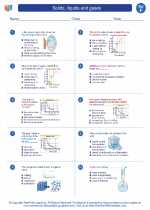 Solids, liquids and gases
Solids, liquids and gases  Worksheet/Answer key
Worksheet/Answer key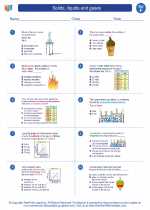 Solids, liquids and gases
Solids, liquids and gases  Worksheet/Answer key
Worksheet/Answer key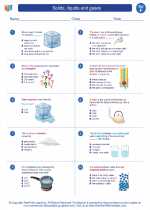 Solids, liquids and gases
Solids, liquids and gases  Vocabulary/Answer key
Vocabulary/Answer key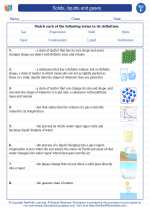 Solids, liquids and gases
Solids, liquids and gases  Vocabulary/Answer key
Vocabulary/Answer key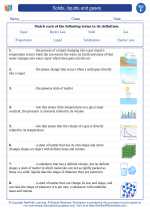 Solids, liquids and gases
Solids, liquids and gases 

 Activity Lesson
Activity Lesson
 Worksheet/Answer key
Worksheet/Answer key
 Worksheet/Answer key
Worksheet/Answer key
 Worksheet/Answer key
Worksheet/Answer key
 Vocabulary/Answer key
Vocabulary/Answer key
 Vocabulary/Answer key
Vocabulary/Answer key

The resources above cover the following skills:
PHYSICAL SCIENCE
Energy
Students who demonstrate understanding can:
Plan an investigation to determine the relationships among the energy transferred, the type of matter, the mass, and the change in the average kinetic energy of the particles as measured by the temperature of the sample.